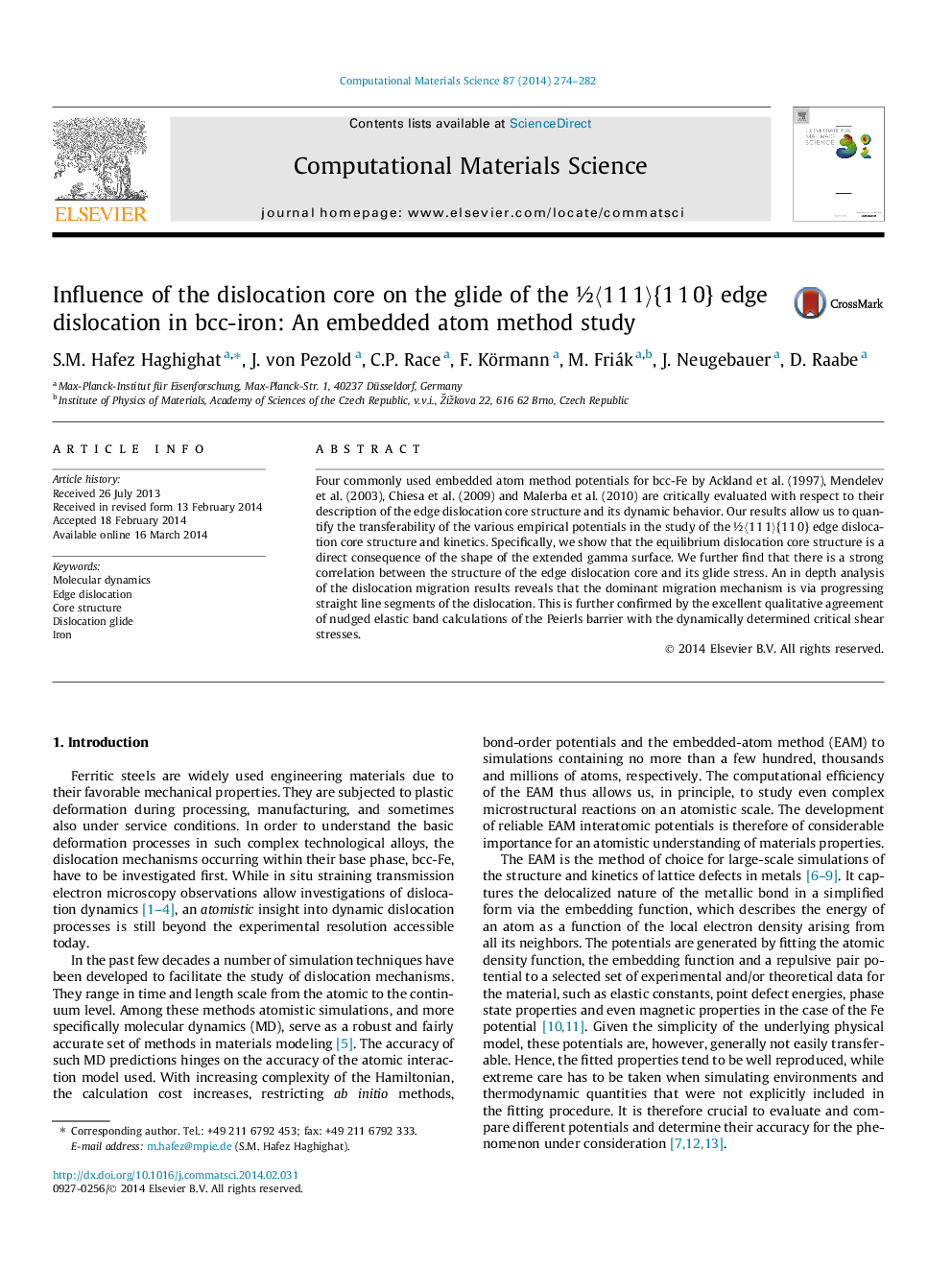| Article ID | Journal | Published Year | Pages | File Type |
|---|---|---|---|---|
| 1560569 | Computational Materials Science | 2014 | 9 Pages |
Abstract
Four commonly used embedded atom method potentials for bcc-Fe by Ackland et al. (1997), Mendelev et al. (2003), Chiesa et al. (2009) and Malerba et al. (2010) are critically evaluated with respect to their description of the edge dislocation core structure and its dynamic behavior. Our results allow us to quantify the transferability of the various empirical potentials in the study of the ½ã1 1 1ã{1 1 0} edge dislocation core structure and kinetics. Specifically, we show that the equilibrium dislocation core structure is a direct consequence of the shape of the extended gamma surface. We further find that there is a strong correlation between the structure of the edge dislocation core and its glide stress. An in depth analysis of the dislocation migration results reveals that the dominant migration mechanism is via progressing straight line segments of the dislocation. This is further confirmed by the excellent qualitative agreement of nudged elastic band calculations of the Peierls barrier with the dynamically determined critical shear stresses.
Related Topics
Physical Sciences and Engineering
Engineering
Computational Mechanics
Authors
S.M. Hafez Haghighat, J. von Pezold, C.P. Race, F. Körmann, M. Friák, J. Neugebauer, D. Raabe,
